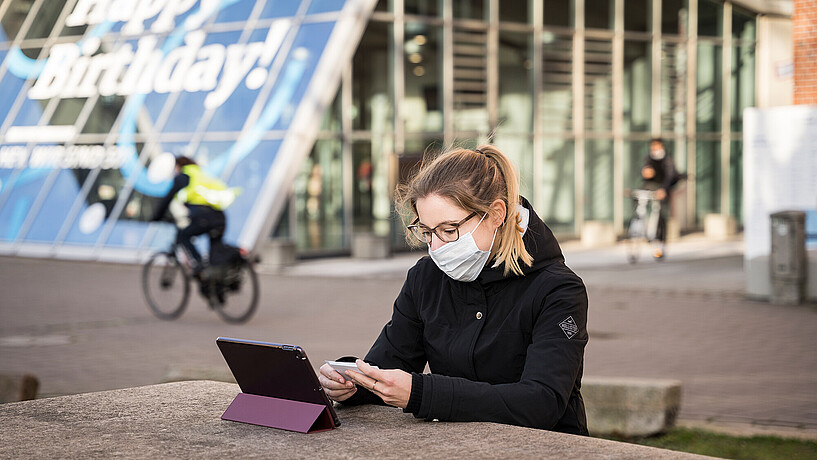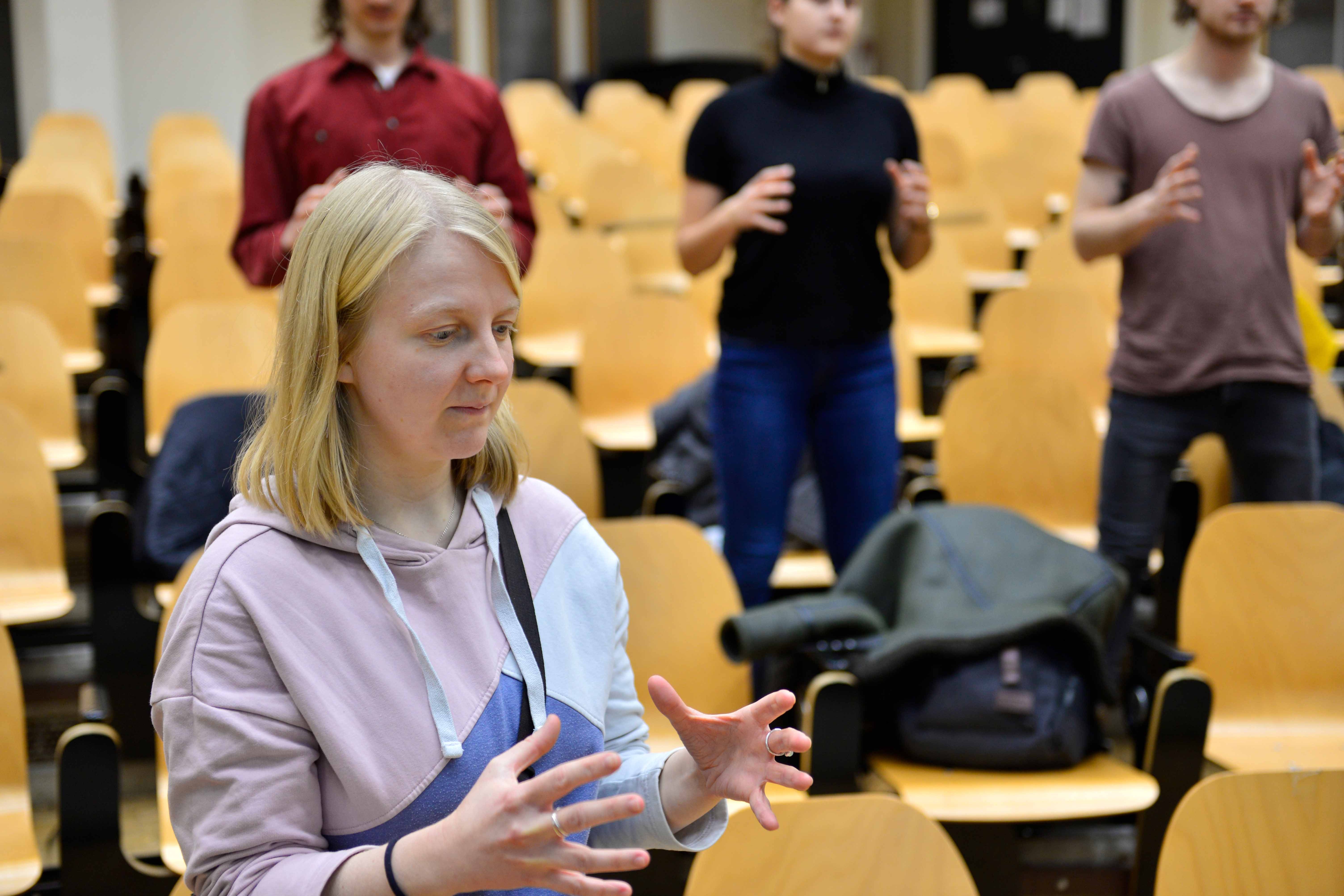It was supposed to be a normal final semester, with a few last courses, the compulsory internship and the Bachelor's thesis. But these days, Sabine Krauß is a long way away from this 'normality'. Instead of sitting in a lecture hall or the library, instead of standing in a lab, the 23-year-old Nutrition and Home Economics student mostly studies in her small Hamburg apartment. She is on her laptop day after day, attending seminars and lectures from her desk. After nine months of studying in corona mode, a certain amount of routine has set in. 'I've set specific times for seminar exercises and put together my own schedule. This semester I also have a number of video lectures where people can actively participate,' she reports.
She's also getting increasingly better at balancing out her studies. In March and April things looked much different: because they were surprised by the lockdown and unprepared for completely digital teaching, many instructors reacted by assigning more work than usual. They were under significant pressure, and they had to find solutions and transfer their teaching completely online. This meant PowerPoint presentations instead of talks in front of the class, take-home essays instead of exams, and lots of homework in the hope of giving students' days more structure. Krauß describes the first lockdown as very stressful and trying. 'We had to adjust to the new study situation, and along with that there was a lot of uncertainty about how and when things would get back to normal.'
The pandemic eats away at the psyche
A lot of students have felt the same way during the corona pandemic. The virus and its impacts are omnipresent in everyday life. The day begins with new, frightening reports about increasing infections and overloaded intensive care units. Social contacts are limited to a minimum, and most only see their fellow students in video chats. Many are worried about relatives and friends who belong to high-risk groups. Added to this is students' uncertainty about their professional future: Can I start a Master's degree in another city? Will I get a spot for my internship? How is starting a career in a crisis supposed to work?
Studies show that anxiety, hopelessness and depression have increased since the pandemic began – including, but not only, among students. According to a survey carried out by ETH Zürich, students who live alone or who have not been able to build up a social network in the new, big city are especially at risk. Women suffer from limited social contacts more than men. There is a simple reason for this: they often have a larger circle of friends and meet up with their friends more often. This means the limitations on social contacts are more stressful for them. This is a big dilemma posed by the pandemic: normally it is precisely these social contacts, time spent with friends, or a hug from a best friend which are good ways to remedy a psychological crisis and lift a person's spirits.
The structure of daily life has fallen away
Since the beginning of March, Alla Bogdanski has been observing how the corona pandemic has gnawed away at our basic pyschological needs. The psychologist and behavioural therapist is a psychological counsellor in the Student Counselling Office at HAW Hamburg. 'The biggest impact for students is the loss of structure and security. This affects new students above all,' she says. Having just left home, they still don't have many social contacts in their new city, and they often have difficulty staying organised. Normally the university gives structure to their days – through lectures, seminars and study groups; through offers such as sports and language-tandem programmes; or through work in student organisations.


